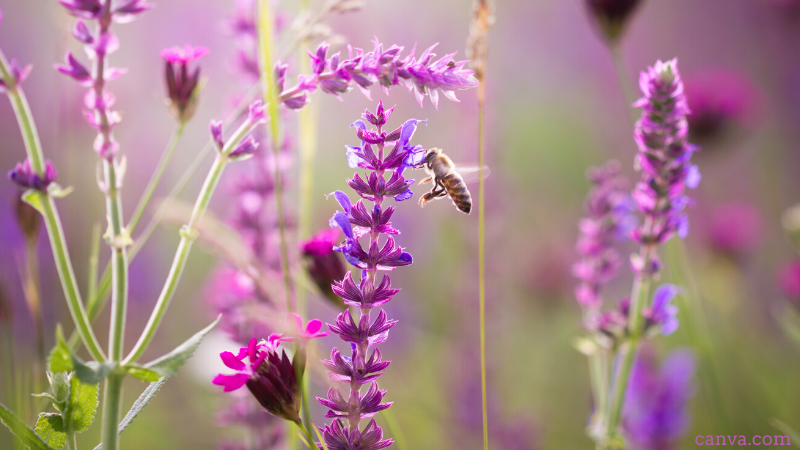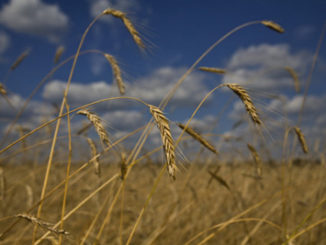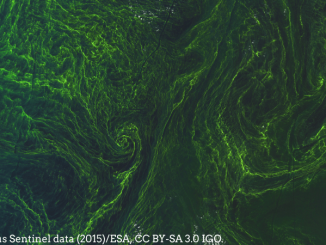
Crop rotations and space for nature are again under threat, as pressure mounts on basic conditionality in the new Common Agricultural Policy (CAP). Under the pretext of the impact of the War in Ukraine, it has emerged that the European Commission and 16 member states (Bulgaria, Czechia, Denmark, Germany, Ireland, Greece, Spain, Italy, Latvia, Lithuania, Luxembourg, Hungary, Poland, Portugal, Finland, and Sweden) are prepared to allow such exemptions from the basic environmental standards to be continued for beyond the initial 12 months proposed.
This situation has become apparent following the June meeting of Agriculture and Fisheries Council, which was held behind closed doors. According to a letter dated 24th June, co-signed by ARC and 16 other NGOs, it appears these derogations would be granted in accordance with Article 148 of the CAP Strategic Plans regulation, and could affect two Good Agricultural and Environmental Conditions (GAEC): GAEC 7 on crop rotation and GAEC 8 on non-productive areas or features.
Limited market impact
The NGO-led letter points to mounting evidence that the proposed changes would do little to improve market access, before taking aim at the deeper structural causes of current supply chain stresses.
Read the letter from 17 NGOs to the European Commission on CAP Derogations 24_june_2022
“Not only does the EU have a very limited capacity to increase its agricultural output, especially without incurring in higher imports and environmental impact, but this approach also fails to address other factors of greater influence, such as the role of financial speculation in increasing agrifood prices and the food-feed-fuel competition, which is very strong in the EU. In this regard, the EU should pursue different solutions such as phasing out any support to crop-based biofuels, slashing food waste and tackling the excessive consumption of animal-sourced foods.”
It adds that these exemptions would set EU farm policy “a decade back” and are against basic do-no-harm requirements of CAP funding. Moreover, the letter emphasises that the agronomic practices that these two GAECs are based on “help protect soils and biodiversity on arable land, but they also play a substantial role in pest control, crop pollination and increased farm resilience, which can lead to better economic performance and input self-sufficiency.
While over 20 million tonnes of grain has been blockaded by Russia at Ukrainian ports, globally 2.19 billion tonnes is grown annually: over half of these – 1.57 billion tonnes – is grown for animal feed, biofuels and uses other than direct human consumption.
MEP exasperation
Meanwhile, a group of MEPs are also exasperated at the potential exemptions on rotations and space for nature.
In a letter dated 1st July MEPs from the Green, S&D, Left and Renew groups express “consternation” at the very idea “that the Commission is delaying the implementation of two key CAP conditionality requirements intended to sustainably maintain our productivity and increase our resilience, effectively extended the existing “exceptional and temporary” derogations of 2022 into a second year.
Read the letter by a group of MEPs to the EU Commission on conditionality
The MEPs are clearly annoyed at being left in the dark during this process, whereby Ag ministers and the Commission met behind closed doors. The letter states that it is “crucial that the Commission respect the political agreement of the co‐legislators on the hard‐fought CAP reform. The Commission should keep both co‐legislators informed of changes envisaged to the basic common agreement, and demonstrate their strict compliance with the conditions of Article 148 SPR. (Strategic Plan Regulation)”. (emphasis in original).
“Derogations for a maximum of 1 year must be justified and effective” the letter states, which was addressed to President von der Leyen, Vice-President Timmermans and Commissioner Wojciechowski. A question is raised over the use of article 148 which allows for “emergency” implementing acts. Importantly, however for derogations of over 12 months “a fully‐fledged legislative procedure” is “required”.
In this context the MEPs ask:
- How does the Commission ascertain that there is an emergency, and of what nature and extent? The Commission is legally obliged to demonstrate the preconditions for the adoption of derogations. Yet the Commission has repeatedly stated that the food security of the EU is not at stake. Who, then, are the concerned parties that EU actions would support?
- How does the Commission define what is necessary in that emergency? How would the proposed derogations actually help alleviate the food security situation? Minimal gains in yield on what is often marginal land will not achieve much, especially when compared to the high levels of food waste and of food crops diverted for use as animal feed or 1st generation biofuels.
- Will derogations be awarded on a case‐by‐case basis for each national strategic plan?
The MEPs, including Hausling, Noichl and Flannagan, who are CAP SPR shadows for the Green, S&D and Left groups respectively, call for “a comprehensive scientific impact assessment to establish whether the proposed derogations actually help in the identified emergency, and the extent of possible negative consequences.”
Concern is also expressed in the letter about how the Commission will account for the impact of these derogations on climate expenditure.
CAP’s climate performance and accountability has been roundly criticised by the European Court of Auditors: the ECA has been warning since 2016 that the Commission has been exaggerating the proportion of of CAP spending attributed to climate, which the Commission has largely ignored.
Nitrogen – just fix it!
Instead of derogations, the focus should be on using CAP conditionalities “as precaution against imminent fertiliser shortages, and guarantor of long‐term productivity.” Strong emphasis is placed on the case for improving and increasing crop rotations – rather than bringing in exemptions – as these have been shown in recent scientific studies to increase productivity and reduce the land area needed for production and the need for synthetic fertilizers. Yield and productivity improvements, as well as land sparing and synthetic fertilizer reductions are all cited in the letter.
Indeed the role of legumes in these actual GAECs is noted – “Crop rotation under GAEC7 can include legumes in the rotation, and, further, 4 of the 7% of Ecological Focus Areas under GAEC 8 may consist of nitrogen‐fixing crops”.
This letter points out that with a pending fertilizer shortages and rising prices, we will need more – not less – nitrogen-fixing leguminous crops sown.
Emphasis should be put, instead, on the following areas:
- Nitrogen fixation by bacteria in leguminous plants: crop rotation with legumes, under‐sowing using leguminous cover crops or secondary crops, in combination with green manuring where appropriate; managing risk with insurance for leguminous rotations.
- Use of existing nutrients in animal waste: use of manure, compost or high‐organic matter fertilisers refined from slurry waste; developing storage and supply chains.
- Nutrient management plans that prevent leaching; building topsoil and retaining nutrients.
- Reduction of EU industrial livestock levels to match grazed fodder capacity on open pasture, reducing dependency on animal feed to bring our food system back within planetary boundaries.
“EU actions on food security ‐ including its rapid response to the Russian aggression ‐ should strengthen, not undermine short‐medium term resilience and long‐term productivity. Given the climate emergency, the approximately 2% of global GHG emissions deriving from the production of fertilisers, and high fertiliser prices, it is vital to promote agronomic measures to fertilise soils in a manner independent of expensive, Russian‐gas derived inputs.”
Already the war in Ukraine has seen a raft of rollbacks and delays on environmental progress. This looks set to continue, unless concerned MEPs and others push back on food system and nitrogen-fixing inconsistencies which have become all the more apparent in recent weeks.
More
Food Security versus Sustainability in Europe during the war in Ukraine




